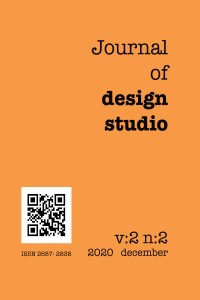Abstract
References
- Abowardah , E.,and M., Khalil, (2016), “Design Process & Strategic Thinking in Architecture” ,Conference Paper · March 2016, https://www.researchgate.net/publication/328130631 , Proceedings of 2016 International Conference on Architecture & Civil Engineering (ICASCE 2016) London, March 26-27, 2016.
- Bhattacharjee,S., and S., Bose, (2015), “Comparative analysis of architectural education standards across the world”, ARCC 2015 Conference – The Future of Architectural Research (Chicago, IL).
- Dizdar, S., (2015), “Architectural education, project design course and education process using examples, Procedia - Social and Behavioral Sciences 176 (2015) 276 – 283, IETC 2014, Available online at www.sciencedirect.com 1877-0428 © 2015 The Authors. Published by Elsevier Ltd. This is an open access article under the CC BY-NC-ND license.
- Farahat, B., (2011), “Architectural Education Future Experience in Designing a New Curriculum for Undergraduate University Education in Architecture”, Proceedings of EDULEARN11 Conference. 4-6 July 2011, Barcelona, Spain. ISBN: 978-84-615-0441-1. Irouke, V., and J., Ahianba, (2013), “Advancement of Creativity in Architectural Design Education” A.A.U. Journal of Environmental Studies Volume 1, Number 1, June 2013.
- Ranjazmayazary, M., et al. (2016), “Comparative Study on Architectural Contemporary Schools Based on Interaction of Form, Function and Structure”, Journal of Architectural Engineering Technology, J Archit Eng Tech 2016, 5:4 DOI: 10.4172/2168-9717.1000174, Volume 5 , Issue 4 , 1000174.
- Rosenberg, F., (2012), “Science for Architecture: Designing Architectural Research in Post-War Sweden”, Architecture Culture and the Question of Knowledge: Doctoral Research Today, Spring 2012, pp. 97-112.
- Snell, K.,(2014), “Towards a New Paradigm in Architectural Education”, Faculty Publications and Scholarship. Paper 2.http://source.sheridancollege.ca/fast_arch_publ/2.
- Spiridonidis , C., and M., Voyatzaki, (2007), “Teaching and Experimenting with Architectural Design: Advances in Technology and Changes in Pedagogy”, EAAE-ENHSA Architectural Design Teachers' Network Coordinator, School of Architecture, Aristotle University of Thessaloniki, Greece EAAE-ENHSA Construction Teachers' Network, ISBN 2-930301-32-5.
- Stephen Davies, S., (2015), “Is Architecture Art?”, In book: Philosophy and Architecture (pp.31-47), Rodopi, University of Auckland, ResearchGate.
- Uzunoglu, S., (2012), “Aesthetics and Architectural Education”, Procedia - Social and Behavioral Sciences 51 ( 2012 ) 90 – 98, ARTSEDU , Elsevier Ltd.
- Völker, H., et al, (1996), “The Next Generation of Architecture within Computer Science” Proceedings 6th EFA-Conference, Vienna, pp. 89-96.
Abstract
The integration between art and science is required for the student in the department of architecture. This paper concentrates on the importance of integration between artistic skills and scientific abilities for the student to achieve high quality level of learning in the department of architecture in Iraq. It analyses the criteria of the architectural education and the educational method used. It demonstrates the integration relationship between art, science and architecture. It follows a descriptive analyses methodology to investigate the skills and abilities required for the student to cope with the criteria of architectural education. It conducted a case study on students in the department of architecture in Iraq to explore the impact of having these skills and abilities on the student’s progression. It explains why a few students only graduate with high grades. The results obtained showed that the integration between artistic skills and scientific abilities is very important for the students. On the other hand, developing the artistic skills is harder than developing the scientific abilities in architectural education.
References
- Abowardah , E.,and M., Khalil, (2016), “Design Process & Strategic Thinking in Architecture” ,Conference Paper · March 2016, https://www.researchgate.net/publication/328130631 , Proceedings of 2016 International Conference on Architecture & Civil Engineering (ICASCE 2016) London, March 26-27, 2016.
- Bhattacharjee,S., and S., Bose, (2015), “Comparative analysis of architectural education standards across the world”, ARCC 2015 Conference – The Future of Architectural Research (Chicago, IL).
- Dizdar, S., (2015), “Architectural education, project design course and education process using examples, Procedia - Social and Behavioral Sciences 176 (2015) 276 – 283, IETC 2014, Available online at www.sciencedirect.com 1877-0428 © 2015 The Authors. Published by Elsevier Ltd. This is an open access article under the CC BY-NC-ND license.
- Farahat, B., (2011), “Architectural Education Future Experience in Designing a New Curriculum for Undergraduate University Education in Architecture”, Proceedings of EDULEARN11 Conference. 4-6 July 2011, Barcelona, Spain. ISBN: 978-84-615-0441-1. Irouke, V., and J., Ahianba, (2013), “Advancement of Creativity in Architectural Design Education” A.A.U. Journal of Environmental Studies Volume 1, Number 1, June 2013.
- Ranjazmayazary, M., et al. (2016), “Comparative Study on Architectural Contemporary Schools Based on Interaction of Form, Function and Structure”, Journal of Architectural Engineering Technology, J Archit Eng Tech 2016, 5:4 DOI: 10.4172/2168-9717.1000174, Volume 5 , Issue 4 , 1000174.
- Rosenberg, F., (2012), “Science for Architecture: Designing Architectural Research in Post-War Sweden”, Architecture Culture and the Question of Knowledge: Doctoral Research Today, Spring 2012, pp. 97-112.
- Snell, K.,(2014), “Towards a New Paradigm in Architectural Education”, Faculty Publications and Scholarship. Paper 2.http://source.sheridancollege.ca/fast_arch_publ/2.
- Spiridonidis , C., and M., Voyatzaki, (2007), “Teaching and Experimenting with Architectural Design: Advances in Technology and Changes in Pedagogy”, EAAE-ENHSA Architectural Design Teachers' Network Coordinator, School of Architecture, Aristotle University of Thessaloniki, Greece EAAE-ENHSA Construction Teachers' Network, ISBN 2-930301-32-5.
- Stephen Davies, S., (2015), “Is Architecture Art?”, In book: Philosophy and Architecture (pp.31-47), Rodopi, University of Auckland, ResearchGate.
- Uzunoglu, S., (2012), “Aesthetics and Architectural Education”, Procedia - Social and Behavioral Sciences 51 ( 2012 ) 90 – 98, ARTSEDU , Elsevier Ltd.
- Völker, H., et al, (1996), “The Next Generation of Architecture within Computer Science” Proceedings 6th EFA-Conference, Vienna, pp. 89-96.
Details
| Primary Language | English |
|---|---|
| Subjects | Architecture |
| Journal Section | Research Articles |
| Authors | |
| Publication Date | December 20, 2020 |
| Published in Issue | Year 2020 Volume: 2 Issue: 2 |
This work is licensed under a Creative Commons Attribution 4.0 International License.
The articles published in Journal of Design Studio had been similarity checked by intihal.net

CALL FOR ARTICLES
Journal of Design Studio call for research papers on studios in all disciplines. Please submit your article by using Dergipark online submission system.


